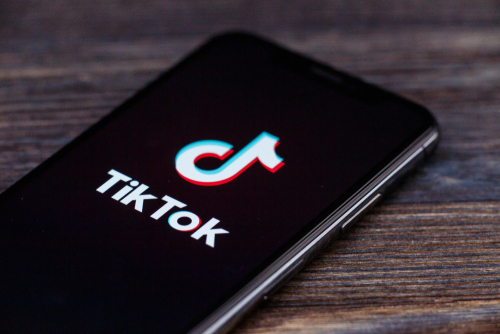
The U.S. House recently passed H.R. 7521, a significant bipartisan bill that seeks to to prevent foreign adversaries, like the Chinese Communist Party (CCP), from targeting, surveilling, and manipulating the American people through applications such as TikTok.
Specifically, H.R. 7521 – the Protecting Americans from Foreign Adversary Controlled Applications Act – would require ByteDance, which owns Tiktok, to either divest the app and others it controls within 180 days or face a ban on American soil. In this regard, anti-China sentiment was the uniting factor, uniting 54 cosponsors from both sides of the aisle under U.S. Rep. Mike Gallagher’s (R-WI) bill. It ultimately passed 352 votes to 65.
“H.R. 7521 is the result of diligent and bipartisan efforts to protect Americans’ data and address the serious national security threat posed by our enemies,” U.S. Rep. Cathy McMorris Rodgers (R-WA) said. “Applications controlled by foreign adversaries can be weaponized to target, manipulate, and surveil millions of Americans. This cannot continue.”
Lawmakers backing the bill have routinely argued that TikTok – with more than 170 million U.S. users – poses a national security threat due to its parent company’s relationship with the Chinese government. Using Chinese intelligence laws, they claimed, the government could force ByteDance to hand over data on U.S. app users.
In a video posted to TikTok following the ban, its CEO Shou Chew denied these charges and told users they could overcome the legislative effort together.
“Over the last few years, we have invested to keep your data safe and our platform free from outside manipulation,” Chew said. “We have committed that we will continue to do so. This legislation, if signed into law, will lead to a ban of TikTok in the United States. Even the bill’s sponsors admit that’s their goal.”
While the bill faces an uncertain future in the Senate, both presidential candidates have already weighed in on the subject, with President Joe Biden signaling he would pass the bill if it crosses his desk, while former President Donald Trump came out against the ban effort. In addition to forcing the sale or ban of TikTok, the bill would also establish a narrow process for the president to prohibit access to applications owned by designated foreign adversaries if they are deemed to pose national security risks.
“This is my message to TikTok: break up with the Chinese Communist Party or lose access to your American users,” Gallagher said. “America’s foremost adversary has no business controlling a dominant media platform in the United States. TikTok’s time in the United States is over unless it ends its relationship with CCP-controlled ByteDance.”
In a last ditch effort recently, TikTok messaged its U.S. users asking them to contact their representatives to continue using the app. However, this seemed to have the opposite effect intended, as lawmakers blasted the effort, accusing the company – in Rodger’s words – of weaponizing applications it controls to manipulate tens of millions of people and further its agenda.
How, exactly, the company’s surveilling and data collection efforts differ from American companies’ own efforts to do the same, remains unclear. China, for its part, officially denounced the move as an act of bullying.
Still, TikTok struck a defiant tone, noting that the push would only benefit a small, all-encompassing group of competitors.
“We will not stop fighting and advocating for you. We will continue to do all we can, including exercising our legal rights to protect this amazing platform that we have built with you,” Chew said to users. “We believe we can overcome this together.”
The bill’s supporters have urged the Senate to quickly take up the bill, although Senate Majority Leader Chuck Schumer (D-NY) has remained uncommitted.




